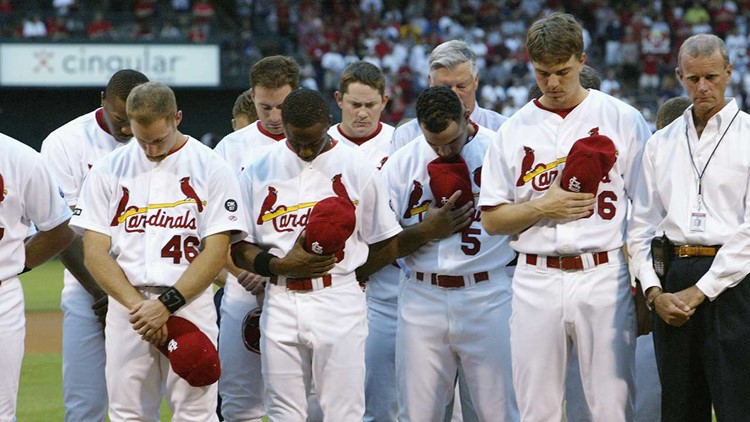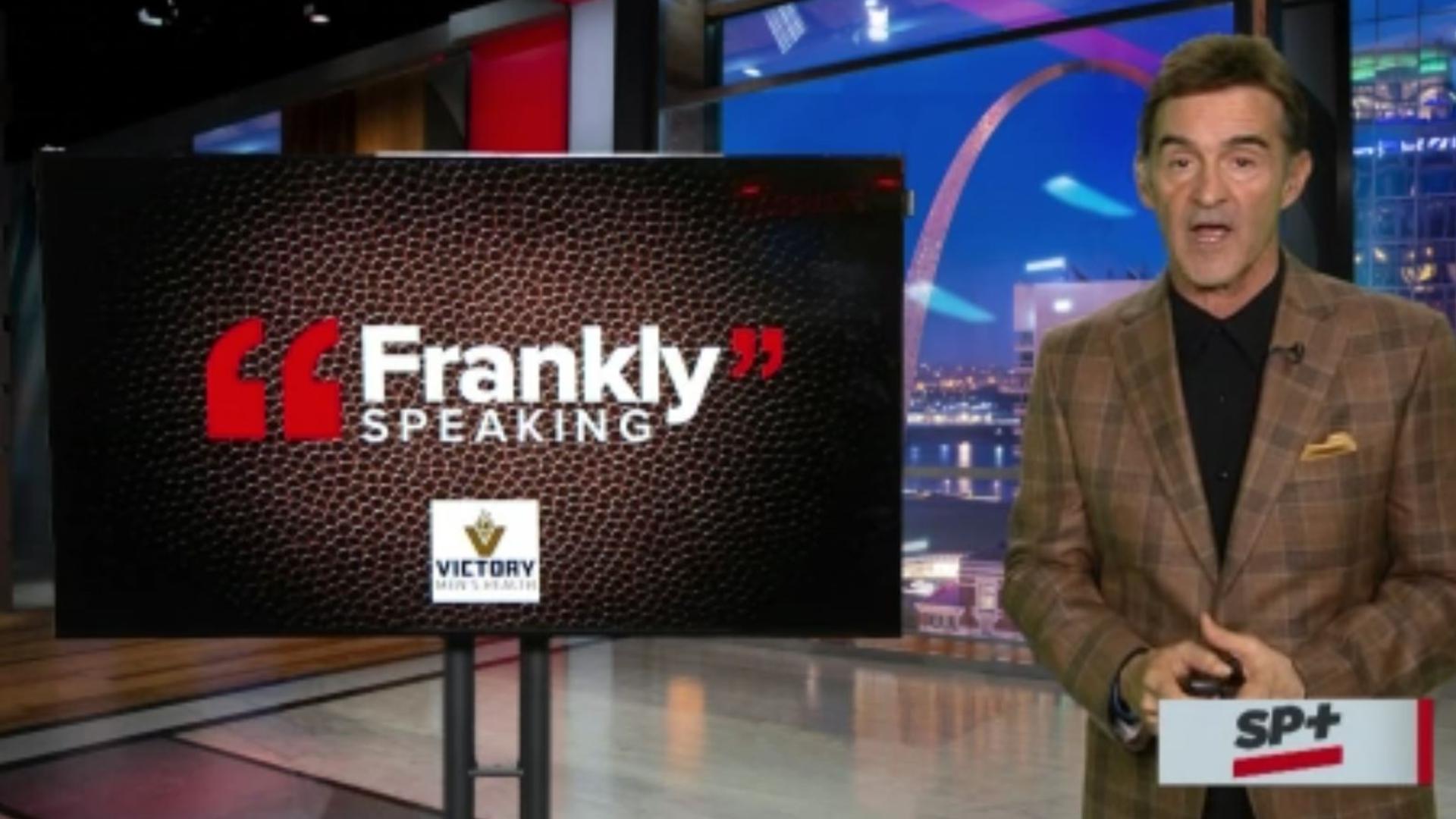Sixteen years ago, my mom and I were driving south on Interstate 170 when tragic news came over KMOX radio. A St. Louis Cardinals player has passed away and the game between the Cubs and Cardinals was postponed. We didn't reach the end of the highway strip before the name was revealed: Darryl Kile.
We were frozen in time for about a minute. If we could have stopped driving, we would. There were fans next to us on the highway who had the same shock. People mowing the lawn in their backyard or getting into the car to head out into their Saturday. There's no protocol for sudden death; it just hits you and you deal with it accordingly.
This was the first time in my lifetime at least that a Cardinals player died during the season. It was shocking. Just a five days earlier, I had watched Kile pitch the Cardinals into first place against the Anaheim Angels, going 7.2 strong innings. Thin and healthy as a horse, Kile didn't look close to death-but he would never climb the pitching rubber during a Major League baseball game again.
He was gone, and Cardinals fans didn't know what to do with themselves. 16 years later, that feeling and emotion hasn't changed. It's still a raw punch to the gut, like someone hitting you and not retracting their fist, instead burrowing it into your stomach slowly over time.
I didn't know Kile personally or ever met him, but he was a stalwart in the rotation. The 2002 season hadn't treated him kindly, throwing his performance up and down through the first two and half months of the season. Before his final start at Busch, Kile was smoked for five runs against Seattle, which followed a labored outing against the Royals. June started with a fine look against the Pirates, but overall, he was 4-4 with an ERA heading towards 4.00 before June 18th against the Angels.
Kile was tough that night, striking out five and allowing a single run while throwing 104 pitches. The man didn't take long to get the ball back from the catcher and deliver it to the hitter. Kile pitched like there was a diner that served alcohol closing before ten o'clock at night. He was like Chris Carpenter out there, using a simple follow-through to pitch without much deliberation.
I liked when he started, because I knew it was going to be a quick game, win or lose. I saw every one of Kile's starts during his two-plus years with the Cardinals when I worked on the manual scoreboard at the old Busch. The guys and I would always check the starters and have a reaction depending on their pitching speed. If it was Jeff Suppan, we knew it was going to be a long night. If it was Todd Stottlemeyer or Kile, we knew it was going to be fast. We appreciated quick pitchers.
The day Kile died, it was a beautiful day at Wrigley Field in Chicago. The stadium was packed, but they were confused when the game didn't start on time and their catcher, Joe Girardi, walked to homeplate nearly in tears. He told the sold-out audience there would be no baseball today. The Cardinals had lost someone-he didn't say who-but it wasn't a time to play. He broke into tears near the end of the message, and even thinking about it now gets me going. I heard it and never unheard it.
It didn't help that Jack Buck had died four days earlier, the night of Kile's final start. Two deaths in the organization in one week. The staff ace and the voice of the team for the past four decades leaves zero protocol on how to react. Again, you just take it and cope the best way possible. This happens by looking at the bright side of things.
The two deaths, especially Kile's sudden passing, brought the community of Cardinals fans together. I had been a diehard fan for over 10 years, but I never saw how closely knit the city's baseball fans were before June, 16 years ago. In the most bittersweet way possible, it showed how strong this city was.
I'll never forget Mike Matheny's hand on the jersey in that dugout shot. I'll never forget how Tony La Russa rallied the Cardinals to the playoffs. In an interview with the media years ago when discussing his managerial career in St. Louis, La Russa always thought that 2002 team was going to win it all. He's still shocked over a decade later that it didn't happen.
Years later, Josh Hancock died during the season, but that didn't have the same impact as Kile. Perhaps it was tenure, role, or just the manner with which the relief pitcher died. Maybe fans knew how to deal with it then.
Kile's passing still haunts me to this day, as a fan and writer. Maybe it's because I miss his style of pitching, or it could be the fact he left a wife and three kids behind. The shot of him playing with his kid on Father's Day at Busch Stadium will still strike a chord and conjure up some emotional response from me. He was having the time of his life, and then he was gone.
I guess the message is old-fashioned and straight forward: appreciate life every day, because it could all end the next. Being around family or friends, or just having a good time, shouldn't be taken for granted by millionaire athletes or the blue-collar folks that watch their every move on the field. Life is a privilege, and reminders of that only help us while breaking us at the same time.
Kile was just another guy to some, but he was a leader for the Cardinals and a family man at home-so it stung then and it still does now.
Baseball is a romantic sport that takes more than it gives at times, and Kile's passing is proof of that.
I'll remember how it brought fans together. That's what I'll take away 16 years later.
Thanks for reading and play ball.



